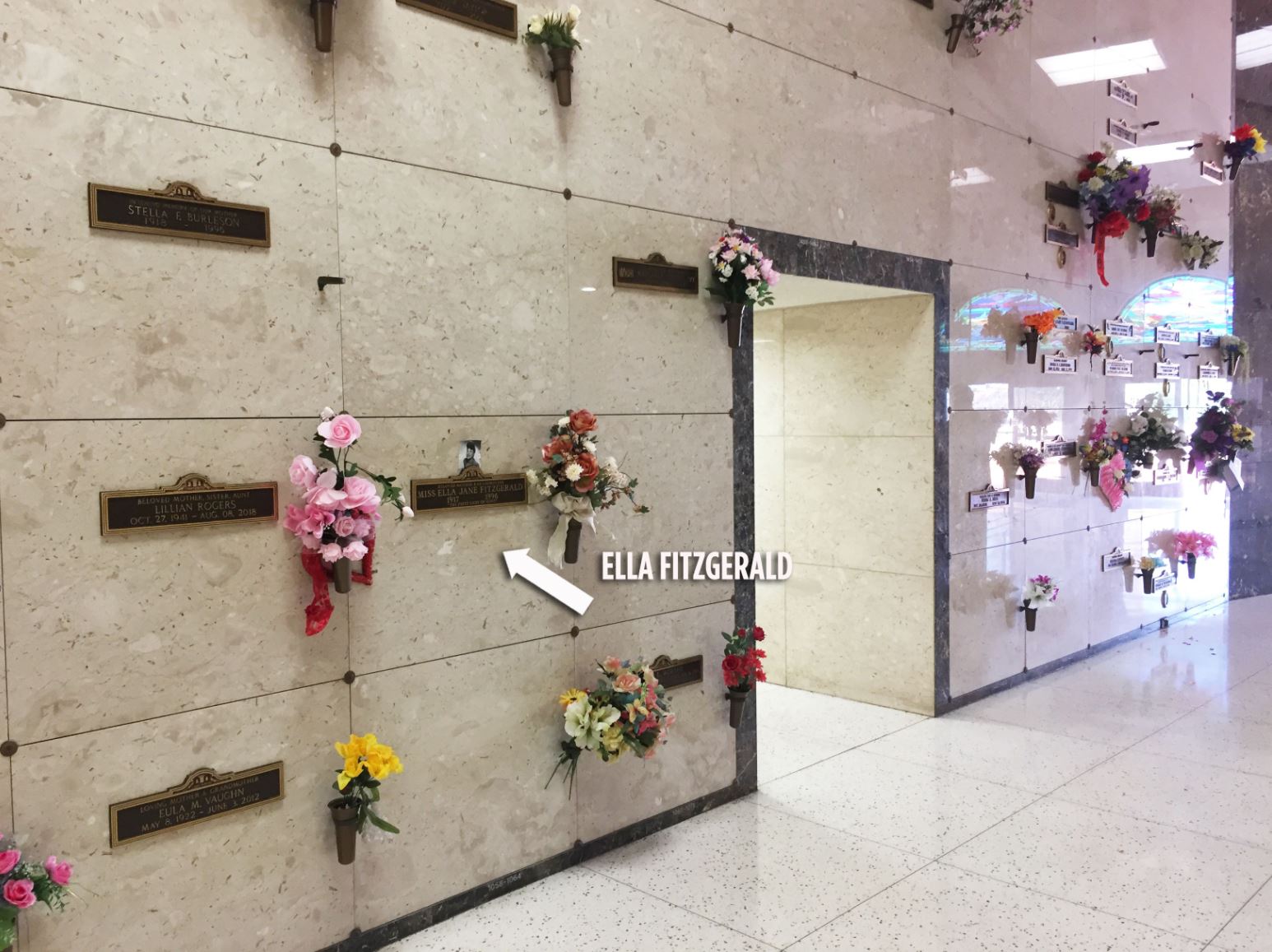Ella Fitzgerald (Ella Jane Fitzgerald)

Ella Jane Fitzgerald (April 25, 1917 – June 15, 1996) was an American jazz singer often referred to as the First Lady of Song, Queen of Jazz and Lady Ella. She was noted for her purity of tone, impeccable diction, phrasing and intonation, and a “horn-like” improvisational ability, particularly in her scat singing. After tumultuous teenage years, Fitzgerald found stability in musical success with the Chick Webb Orchestra, performing across the country, but most often associated with the Savoy Ballroom in Harlem. Fitzgerald’s rendition of the nursery rhyme “A-Tisket, A-Tasket” helped boost both her and Webb to national fame. Taking over the band after Webb died, Ella Fitzgerald left it behind in 1942 to start a solo career that would last effectively the rest of her life. Signed with manager and Savoy co-founder Moe Gale from early in her career, she eventually gave managerial control for her performance and recording career to Norman Granz, who built up the label Verve Records based in part on Fitzgerald’s vocal abilities. With Verve she recorded some of her more widely noted works, particularly her interpretation of the Great American Songbook. While Ella Fitzgerald appeared in movies and as a guest on popular television shows in the second half of the twentieth century, her musical collaborations with Louis Armstrong, Duke Ellington, and The Ink Spots were some of her most notable acts outside of her solo career. These partnerships produced recognizable songs like “Dream a Little Dream of Me”, “Cheek to Cheek”, “Into Each Life Some Rain Must Fall”, and “It Don’t Mean a Thing (If It Ain’t Got That Swing)”. In 1993, Fitzgerald capped off her sixty-year career with her last public performance. Three years later, she died at the age of 79, following years of decline in her health. After her passing, Fitzgerald’s influence lived on through her fourteen Grammy Awards, National Medal of Arts, Presidential Medal of Freedom, and tributes in the form of stamps, music festivals, and theater namesakes.
Ella Fitzgerald had suffered from diabetes for several years of her later life, which had led to numerous complications. In 1985, Fitzgerald was hospitalized briefly for respiratory problems, in 1986 for congestive heart failure, and in 1990 for exhaustion. In March 1990 she appeared at the Royal Albert Hall in London, England with the Count Basie Orchestra for the launch of Jazz FM, plus a gala dinner at the Grosvenor House Hotel at which she performed. In 1993, she had to have both of her legs amputated below the knee due to the effects of diabetes. Her eyesight was affected as well. In 1996, tired of being in the hospital, she wished to spend her last days at home. Confined to a wheelchair, she spent her final days in her backyard of her Beverly Hills mansion on Whittier, with her son Ray and 12-year-old granddaughter, Alice. “I just want to smell the air, listen to the birds and hear Alice laugh,” she reportedly said. On her last day, she was wheeled outside one last time, and sat there for about an hour. When she was taken back in, she looked up with a soft smile on her face and said, “I’m ready to go now.” She died in her home on June 15, 1996 at the age of 79. A few hours after her death, the Playboy Jazz Festival was launched at the Hollywood Bowl. In tribute, the marquee read: “Ella We Will Miss You.” Her funeral was private, and she was buried at Inglewood Park Cemetery in Los Angeles.
Born
- April, 25, 1917
- Newport News, Virginia
Died
- June, 15, 1996
- Beverly Hills, California
Cause of Death
- diabetes
Cemetery
- Inglewood Park Cemetery
- Inglewood, California



